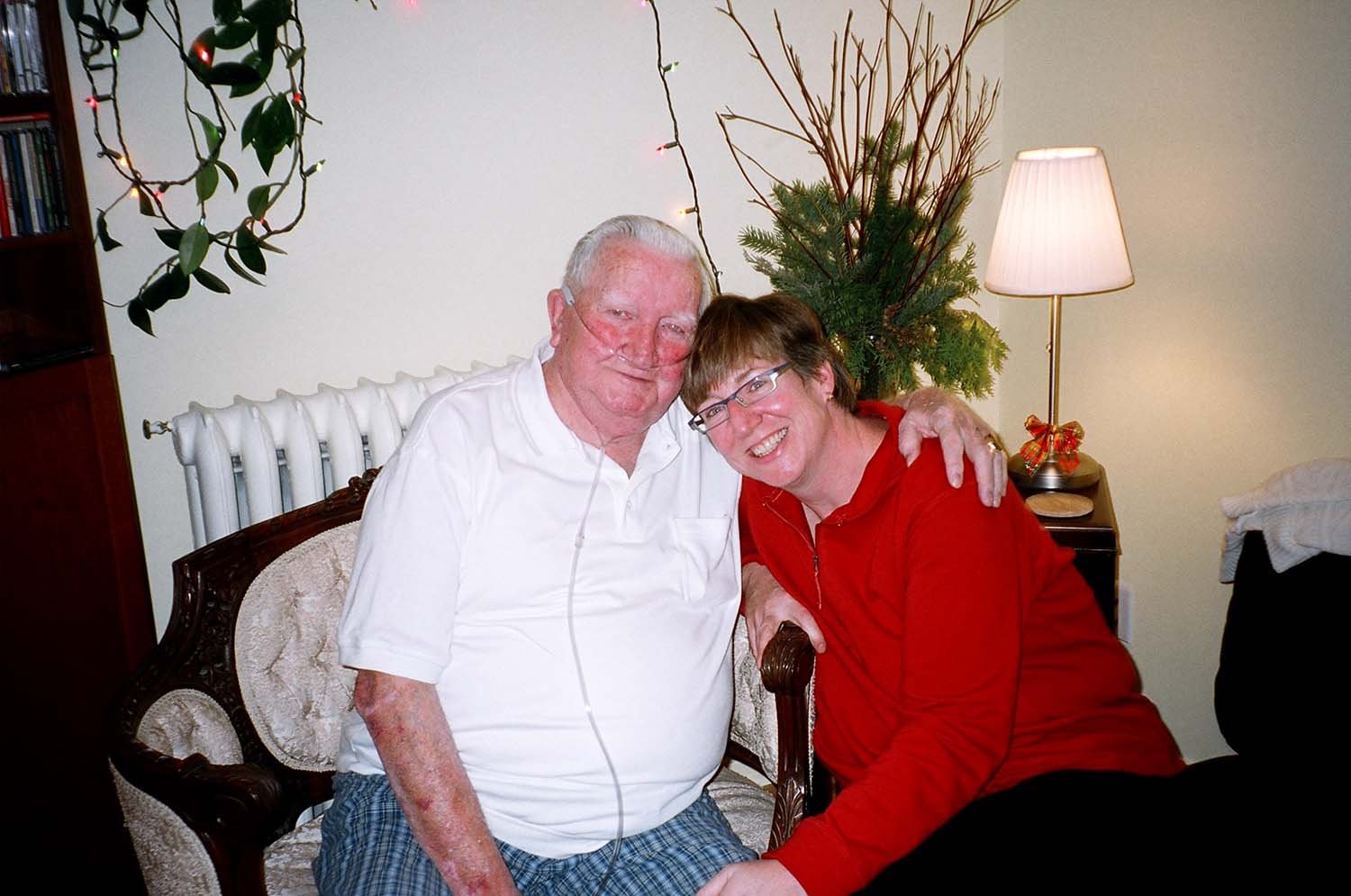STUG - The 4-Letter Word That Saved My Life
Knowledge is power. And for me, learning the language of loss has made the grief journey a lot less stressful and confusing. Here’s an example. Almost two years after my mom had died, I thought that the most challenging part of grieving was over and the pain of losing my mother would be easier to manage moving forward. Don’t they say, “time heals all wounds?” That spring, I was walking in the shopping mall and noticed a display of Mother’s Day cards outside the Hallmark store. Bam! Gut punch. I could not catch my breath and felt the familiar tightening in my chest and tingling at the back of my throat. Hot tears sprang to my eyes, and I experienced the gravity of sadness I had not felt since the day she died when I walked out of the hospital and almost collapsed with the weight of realizing that my mom was dead. I stood in the shopping mall and thought, “What is wrong with me?! Why am I such a mess? What is happening to me?” It would be months before that life-saving, four-letter word, explained to me what was happening. And it was such a relief that I’ve been singing its praises ever since.
STUG is an acronym for a Sudden/Subsequent Temporary Upsurge of Grief (STUG). Coined by renowned grief researcher Therese Rando, a STUG is an unsettling, but natural occurrence experienced by bereaved people when something unexpected evokes their grief. Whether subsequent or sudden, these destabilizing moments can make a griever feel like they are “back at the beginning” and as if they have somehow “failed.” It can be frightening when a STUG hits, because the world around us pushes us to “get over, get past or move on” from our suffering. We may think, “I was doing so well, and then out of nowhere, I felt that sharp pain of grief I haven’t felt in months/years.”
Meeting Therese Rando at the Bereavement Ontario Conference 2015
When my father died, I was an older and more seasoned griever than I had been when my mom had died. I thought that the deaths of dozens of friends, volunteers, and clients while I worked at the AIDS Committee of Toronto through the nineties had numbed me to the ravages of grief. But just after the fifth anniversary of my dad’s death, I was not ready for the enormous STUG that confronted me inconveniently in the grocery store.
I was walking down the aisle of Christmas goodies when my eye caught sight of a can of Poppycock, and next to it was a row of Moritz Icy Squares. At that exact moment, I got a whiff of Old Spice aftershave as someone else’s dad walked by. The final assault to my senses was Frank Sinatra’s “Have Yourself a Merry Little Christmas” playing on the grocery store speaker. These sensations hit me, and without warning, I was gripping the shopping cart to keep from collapsing as the tears spilt from my eyes. When I could catch my breath, I texted fellow grief-journeying friends to say: “Oh no! I’m having a STUG in Loblaws!” Their responses remind me that I’m not alone and what I’m feeling is perfectly normal:
“Oh honey, take a deep breath. Remember the T stands for Temporary,”
“I hear you. I’ve been feeling pretty STUGGY lately too with the upcoming holidays,”
“Oh friend, that’s hard...sending LOVE to your STUG.”
In the present moment, years later, I expect my annual holiday STUG and am relieved when it happens. I experience those feelings and memories as a “hello” from my beloveds who have passed on. For the uninitiated, having an upsurge of grief can be awful, no matter how temporary. Grief is already such an isolating experience. Many people who have lost a loved one find that friends and family stop asking, “how are you?” far too soon. The glazed and uncomfortable looks when we bring up our dead people signal that we should keep those unpleasant thoughts and feelings to ourselves. Even when we want to reminisce about how they loved Poppycock!
I recommend that everyone have their own “grief pod” – a group of folks who understand us and our messy, unpredictable and all too human experience of living with grief. Nobody “gets over” the death of their parent/partner/sibling/child. The impact of relentless, multiple losses of friends and clients is genuine, and STUGS do not just happen around the holidays.
It can be a birthday or anniversary that evokes a STUG.
It can be a smell or sound that takes us back in time.
It can be a song, a word, a movie, a joke, a news story, or anything that reminds us of people who are no longer here with us in physical form.
Our grief pods know that grieving people do not want or need fixing. Grievers need to be heard. We loved and lost (or struggled with and lost) people who were part of our lives and always will be. Grieving well means learning to live with our grief and telling the story of our loved ones’ lives and deaths in ways that strengthen us and even bring us joy.
Whatever holiday, holy-day or special event - or simply a random Tuesday afternoon - please don’t be discouraged by the arrival of a Sudden Temporary Upsurge of Grief. Try to be prepared and keep a tissue in your pocket and your well-chosen grief pod at the ready. Remember to stop and breathe. The T stands for temporary. Connect with your grief pod for assurance, validation, and space for you and your STUG, and reciprocate when they need the same. Learning about STUGs for me was lifesaving. Lifesaving may seem like an overstatement, but understanding this particular four-letter acronym and its meaning helped me navigate and learn to live with my grief in a way that allows me to remember with joy alongside the sorrow.




